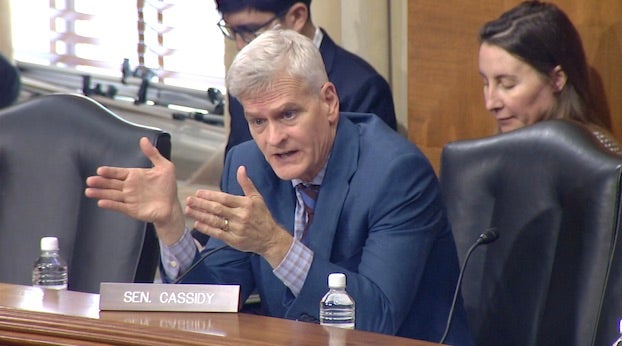Jim Beam column: Good education creates jobs
Published 7:23 am Sunday, September 11, 2022

- McNeese State University is one of the state's many higher education institutions ready to help citizens get the quality education necessary to create good jobs in the state, and public officials are doing their part.
People leave Louisiana for a variety of reasons, but job opportunities elsewhere are the major reason. The state has been doing a better job in recent years in an effort to keep citizens here.
Education, for example, got an extremely high priority at the 2022 regular session of the Louisiana Legislature. The Board of Regents said the $159 million increase for higher education was the largest net increase to higher education operations in state history.
The increase comes on the heels of a 38 percent cut in higher education funding between 2008 and 2021. Most of those cuts were much higher during the Gov. Bobby Jindal administration (2008-2016). The Gov. John Bel Edwards administration and the Legislature have given education a higher priority in recent years.
Trending
In its commentary on the 2022 regular session, the Public Affairs Research Council said the state budget passed during the session “contains historic levels of new cash for public colleges, to give faculty a raise, cover mandated health and retirement increases, provide need-based aid to students, and pay for new initiatives.”
As one data expert said, tax breaks help draw industries to states, but it’s a well-educated workforce that is the best way to expand existing industries and attract new ones.
The state budget for the fiscal year that began July 1 also included a $1,500 pay raise for K-12 public school teachers and a $750 salary increase for school support workers. It’s the fifth teacher pay raise across Edwards’ two terms, but more are needed to reach the regional average.
PAR said the House and Senate placed a new priority on reading skills but rejected a bill that would have stopped promotion to the fourth grade if third graders showed deficiencies on reading assessment. It was a close vote, and the author said he would bring it up again next year.
The budget also contains $50 million for college building maintenance that is long overdue. And early childhood education got an $84 million increase.
Edwards had more good news on Aug. 19 when he announced Louisiana has set another record-low for unemployment. The rate is now 3.6 percent, breaking the 3.8 percent rate in June.
Trending
The number of unemployed individuals in Louisiana fell to 76,783 in July, breaking a record of 77,214 set in June 2006. The state’s employed population for July was 2,027,635, the second highest figure ever recorded.
Three industries showed major annual gains from July 2021. They are professional and business services, leisure and hospitality and manufacturing.
The Lake Charles metropolitan statistical area (one that consists of one or more parishes that contain a city of 50,000 or more) had 101,900 jobs in July. It added 300 jobs from June 2022 and gained 3,200 jobs from July 2021.
The governor also told citizens they can fight inflation and high energy costs by improving their skills and qualifications needed to get a high-paying job.
“The Louisiana Workforce Commission and our four and two-year higher education institutions are here to help,” he said.
The Board of Regents in 2019 said 60 percent of the state’s citizens needed a college degree or high-value credential by the year 2030 to remain competitive. At that time only 43.4 percent of working age adults (age 25-64) had achieved that level of education. The national average was 46.9 percent.
Kim Hunter, commissioner of higher education, said, “By increasing the educational attainment of our citizens, we improve lives. We produce taxpayers who are civically engaged, who drive our economy, and who attract new industry to our state …”
Earlier this month, Edwards announced that an offshore wind-powered hydrogen energy industry cluster in south Louisiana had been awarded a $50 million federal grant to be supplemented by $24.5 million in state matching funds.
The governor called the grant “a significant milestone in Louisiana’s transition to a cleaner, more sustainable, and more diversified energy future.” He added that Louisiana is the first state in the Gulf South to implement a Climate Action Plan.
U.S. Rep. Garret Graves, R-Baton Rouge, and one of the panelists on LPB’s “Leaving Louisiana,” said the state has some positives that need to be promoted better. He said it has the Mississippi River system that serves 31 states, many natural resources and six Class 1 railroads.
Louisiana still has some major problems, but the Edwards administration and the Legislature are definitely moving in the right direction. Let’s hope progress continues during the next gubernatorial administration and when a new Legislature also takes office on Jan. 9, 2024.





